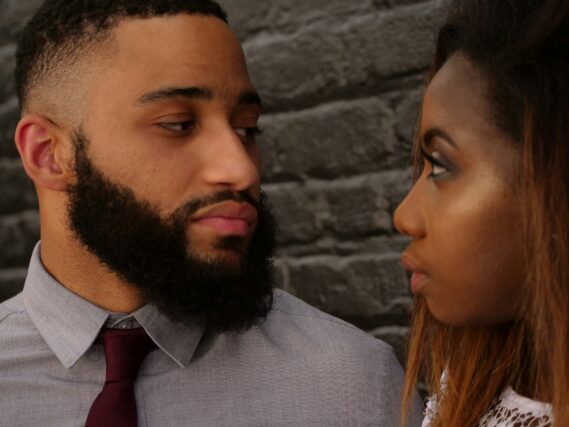Apologising when you mess up or hurt someone is supposed to make things better, not worse.

However, not all “I’m sorry”s are created equal, and sometimes, despite your good intentions, you could be adding insult to injury. If you’re doing any of these things while trying to make amends, don’t be surprised if your apology doesn’t go over too well. Clearly, it’s time to change the way you express remorse.
1. You’re explaining why you did it.
 Source: Unsplash
Source: Unsplash When you launch into a detailed explanation of your actions, you’re essentially defending yourself rather than acknowledging the hurt. Your reasoning, no matter how valid, can come across as justification that undermines the sincerity of your apology. The other person doesn’t need a backstory – they need acknowledgment of their feelings.
2. You add “but” after saying sorry.

Adding “but” after an apology instantly negates everything that came before it. It signals that you’re not really sorry about what happened, just sorry about the consequences. This single word transforms your apology from a moment of accountability into an excuse.
3. You apologise too quickly.

Rushing to say sorry before fully understanding what upset someone shows you’re more focused on ending the discomfort than addressing the issue. Quick apologies often lack the reflection needed to make them meaningful. This hasty approach can make the other person feel like you’re dismissing their feelings.
4. You’re making it about your guilt.

Focusing on how terrible you feel shifts attention from the person you’ve hurt to your own emotional state. Expressions like “I feel so awful” or “I can’t believe I did that” might seem empathetic, but they often pressure the other person to comfort you instead. The reversal of roles just makes a bad thing worse.
5. You demand immediate forgiveness.

Looking for quick absolution through phrases like “Are we good?” or “Can we move past this?” rushes the other person’s emotional process. Healing has its own timeline, and pushing for rapid forgiveness shows you’re putting your comfort over their genuine peace. Your impatience invalidates their need for time.
6. You’re apologising for their feelings.

Saying “I’m sorry you feel that way” subtly blames the other person for their emotional response. A blatant non-apology suggests their feelings are the problem, not your actions. It’s a defensive move that distances you from responsibility while appearing superficially apologetic.
7. You try to make them laugh.

Using humour to lighten the mood during an apology can feel like you’re not taking their hurt seriously. While jokes might ease your discomfort, they can seem dismissive of the situation’s gravity. Your attempt to relieve tension might actually create more distance.
8. You’re being vague.

A general “sorry for everything” fails to show you understand what went wrong. Vague apologies suggest you either don’t know or don’t care enough to acknowledge specific actions. The lack of precision leaves the other person wondering if you truly understand their perspective.
9. You compare it to worse scenarios.

Minimising the situation by pointing out how it could be worse invalidates the other person’s feelings. Statements like “At least I didn’t…” or “It’s not as bad as…” suggest their hurt is an overreaction. Playing the comparison game only adds to the emotional damage.
10. You’re apologising for personality traits.

Saying “Sorry, that’s just how I am” suggests you have no intention of changing harmful behaviour. This type of apology implies the other person should accept future hurt because it’s part of your personality. It’s an excuse wrapped in an apology.
11. You expect immediate change.

Promising instant transformation after apologising sets unrealistic expectations. Real behavioural change takes time and consistent effort. Making sweeping promises of immediate improvement can make future slip-ups feel like intentional betrayals.
12. You’re keeping score.

Bringing up times when they hurt you or reminding them of your past good deeds derails the apology. Having a scorekeeper mentality turns reconciliation into a competition. It suggests your apology comes with conditions rather than genuine remorse.
13. You make it hypothetical.

Using phrases like “If I hurt you” or “If you felt bad” questions the validity of their feelings. Using conditional language suggests their hurt is debatable rather than real. It creates distance from responsibility while appearing to acknowledge it.
14. You’re apologising through text.

Serious apologies deserve face-to-face conversation whenever possible. Written messages can’t convey tone and sincerity effectively. Choosing convenience over connection for important apologies suggests the relationship isn’t worth the discomfort of a direct conversation.
15. You’re trying to fix everything immediately.

Jumping straight into problem-solving mode bypasses the emotional processing needed after conflict. While solutions are important, rushing to fix things can feel like you’re trying to erase the hurt rather than address it. Plus, it often leaves emotional wounds unhealed beneath practical solutions.
16. You repeat the same apology patterns.

Continuously apologising for the same behaviour without change shows your words are empty. Each repeated apology loses meaning when not backed by action. This cycle creates a pattern of hurt that becomes harder to forgive with each occurrence.




